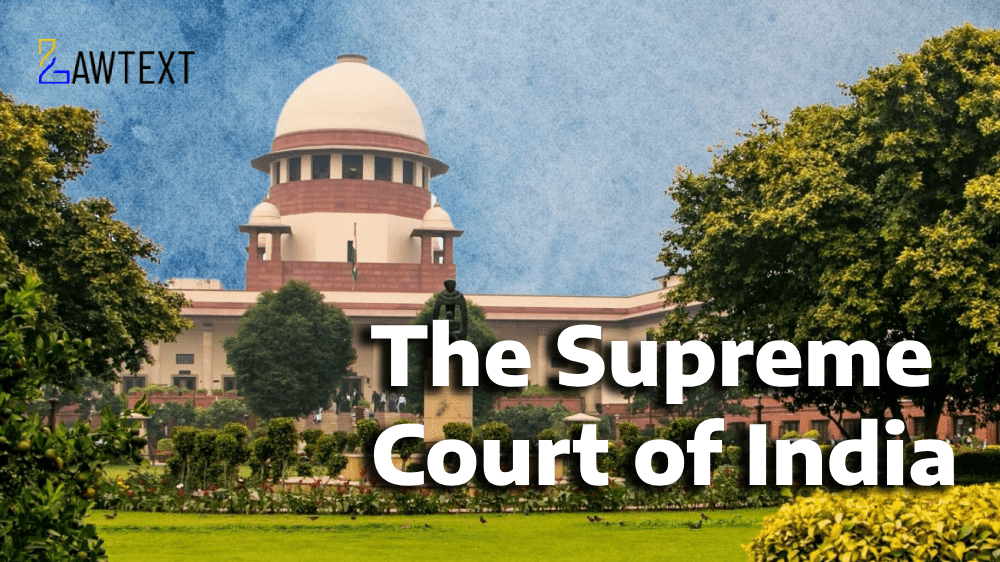CASE NOTE & SUMMARY
This judgment addresses the brutal murder and sexual assault of a four-year-old child. The appellant's conviction under IPC Sections 302, 364, 377, and POCSO Act Sections 4 and 6 was upheld, but the death sentence was substituted with rigorous imprisonment for 25 years without remission. The Court examined the mitigating circumstances, including the appellant's socio-economic background, lack of prior criminal record, and mental health issues, concluding that the case did not fall into the "rarest of rare" category warranting the death penalty.
1. Incident and Context
- Date: April 13, 2016
- The victim, a four-year-old boy, went missing from his home in Piludara village, Gujarat.
- His naked body was later found near a lake with signs of sexual assault and strangulation.
2. Conviction and Appeals
- The trial court sentenced the appellant to death.
- Gujarat High Court confirmed the death penalty.
- The appellant approached the Supreme Court challenging the conviction and sentence.
3. Circumstantial Evidence
- Last Seen: Multiple witnesses testified that the appellant was last seen with the child under the pretext of buying him ice cream.
- Presence at Crime Scene: The appellant was found near the crime scene shortly after the incident.
- Injuries: Medical evidence linked injuries on the appellant’s genitals to the sexual assault on the child.
- Clothing Recovery: The victim's clothing was recovered based on the appellant's disclosure.
- Serological Analysis: The victim's anal and perianal swabs contained semen matching the appellant's blood group (O).
4. Legal Analysis
- The Court applied principles from Sharad Birdhichand Sarda vs. State of Maharashtra (1984) for circumstantial evidence.
- Presumptions under POCSO Act Sections 29 and 30 were invoked due to strong foundational evidence of sexual assault.
- Section 106 of the Indian Evidence Act placed the burden of explanation on the appellant, which he failed to discharge.
5. Sentencing
- Aggravating Factors: Diabolic nature of the crime, victim’s age, and brutality.
- Mitigating Factors: Young age of the appellant, absence of criminal history, socio-economic hardships, and mental health conditions.
- Ruling: Death sentence replaced with 25 years of rigorous imprisonment, following the precedent in Swami Shraddananda vs. State of Karnataka (2008).
Acts and Sections Discussed:
-
Indian Penal Code (IPC):
- Section 302: Murder
- Section 364: Kidnapping for murder
- Section 377: Unnatural offences
-
POCSO Act, 2012:
- Section 4: Penetrative sexual assault
- Section 6: Aggravated penetrative sexual assault
-
Indian Evidence Act, 1872:
- Section 8: Relevance of conduct
- Section 27: Discovery of facts
- Section 106: Burden of proof for facts within the knowledge of the accused.
Ratio Decidendi:
The Court held that while the crime was heinous, the mitigating factors and possibility of reform made the imposition of the death penalty disproportionate. Instead, a fixed period of rigorous imprisonment would suffice to meet the ends of justice without foreclosing the possibility of rehabilitation.
Subjects:
Criminal Law, Sentencing, Child Protection
Death Penalty, POCSO Act, Indian Penal Code, Mitigating Factors, Circumstantial Evidence
Citation: 2024 LawText (SC) (12) 171
Case Number: CRIMINAL APPEAL Nos. _________ of 2024 (@ Special Leave Petition (Crl.) Nos. 9015-9016 of 2019) WITH Special Leave Petition (Crl.) No. 9162/2021
Date of Decision: 2024-12-17
Case Title: SAMBHUBHAI RAISANGBHAI PADHIYAR VERSUS STATE OF GUJARAT
Before Judge: [B.R. GAVAI J. , ARAVIND KUMAR J. , K. V. VISWANATHAN J.]
Appellant: SAMBHUBHAI RAISANGBHAI PADHIYAR
Respondent: STATE OF GUJARAT

